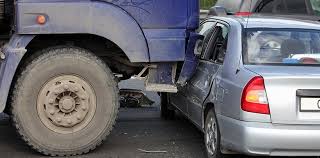Accidents involving 18-wheelers, also known as semitrucks or big rigs, can lead to devastating consequences. Due to their immense size and weight, these vehicles can cause significant damage, severe injuries, and even fatalities. San Antonio, with its busy highways and bustling commercial traffic, is no stranger to such accidents. In the wake of an 18-wheeler accident, victims and their families face numerous challenges—medical bills, loss of income, emotional trauma, and legal complexities. This article aims to shed light on why hiring an experienced lawyer is crucial in navigating these challenges and how they can help secure fair compensation.
Understanding the Unique Challenges of 18-Wheeler Accidents
Accidents involving 18-wheelers differ significantly from typical car accidents due to several factors:
- Severity of Impact: The sheer size and weight of an 18-wheeler can result in catastrophic injuries or extensive property damage. Victims often face long-term medical treatments and rehabilitation.
- Complex Liability Issues: determining liability in 18-wheeler accidents can be complicated. Multiple parties may be responsible, including the truck driver, trucking company, vehicle manufacturer, or maintenance provider.
- Federal and State Regulations: Commercial trucking is governed by stringent federal and state laws, including those set by the Federal Motor Carrier Safety Administration (FMCSA). Understanding these regulations is essential in building a strong case.
- Aggressive Insurance Companies: Trucking companies typically have powerful insurance providers with teams of attorneys working to minimize payouts. Victims often struggle to navigate this adversarial process alone.
Why You Need an Experienced Lawyer
Hiring a lawyer with experience in handling 18-wheeler accident cases is vital. Here’s how they can help:
1. Comprehensive Case Evaluation
An experienced lawyer will analyze every aspect of your case, including accident reports, medical records, witness statements, and any available video footage. They will identify all liable parties and determine the extent of your damages.
2. Navigating Federal and State Laws
Laws governing the trucking industry are complex. A skilled attorney understands these regulations and can identify any violations, such as hours-of-service breaches, improper maintenance, or overloaded cargo, that may have contributed to the accident.
3. Building a Strong Case
Your lawyer will gather evidence, consult with accident reconstruction experts, and negotiate with insurance companies on your behalf. They will ensure that all legal deadlines are met and that your case is presented effectively.
4. Maximizing Compensation
An attorney will help you seek compensation for:
- Medical expenses (current and future)
- Lost wages and diminished earning capacity
- Pain and suffering
- Property damage
- Punitive damages, if applicable
5. Representation in Court
If negotiations fail to result in a fair settlement, your lawyer will represent you in court, fighting for the justice and compensation you deserve.

Steps to Take Immediately After an 18-Wheeler Accident
- Ensure Safety: Move to a safe location if possible and call 911 to report the accident.
- Seek medical attention. Prioritize your health, even if injuries seem minor. Some injuries may not show immediate symptoms.
- Document the scene: Take photos and videos of the accident scene, including vehicle damage, road conditions, and any visible injuries.
- Gather Information: Collect contact details of the truck driver, witnesses, and any involved parties. Note the trucking company’s name and the vehicle’s license plate.
- Avoid Statements: Do not admit fault or make detailed statements to insurance adjusters without consulting a lawyer.
- Contact an Experienced Lawyer: The sooner you engage a lawyer, the better your chances of building a strong case.
Common Causes of 18-Wheeler Accidents
Understanding the causes of these accidents can help victims and attorneys establish liability. Common causes include:
- Driver Fatigue: Long hours on the road can lead to fatigue, impairing reaction times and judgment.
- Distracted Driving: Texting, using GPS, or other distractions can divert a truck driver’s attention from the road.
- Speeding: Driving too fast for road or weather conditions increases the risk of accidents.
- Improper Maintenance: Faulty brakes, worn-out tires, or other maintenance failures can lead to accidents.
- Overloaded cargo: Exceeding weight limits can make trucks unstable and difficult to control.
- Weather Conditions: Heavy rain, fog, or ice can make it challenging to maneuver large vehicles safely.
FAQs About 18-Wheeler Accidents in San Antonio
1. What should I do immediately after an 18-wheeler accident?
Follow these steps:
- Ensure safety and call 911.
- Seek medical attention even for minor injuries.
- Document the accident scene and gather contact information.
- Avoid giving detailed statements to insurance adjusters.
- Contact a qualified attorney.
2. Who can be held liable in an 18-wheeler accident?
Liable parties may include:
- The truck driver
- The trucking company
- Cargo loaders
- Vehicle manufacturers
- Maintenance providers
3. How is fault determined in an 18-wheeler accident?
Fault is determined by reviewing evidence such as:
- Police reports
- Witness statements
- Accident reconstruction
- Maintenance records
- Driver logs and black box data
4. How long do I have to file a lawsuit after an accident in Texas?
In Texas, the statute of limitations for personal injury claims is typically two years from the date of the accident. Consulting a lawyer promptly ensures you meet this deadline.
5. What types of compensation can I receive?

Compensation may cover:
- Medical expenses
- Lost wages
- Pain and suffering
- Property damage
- Punitive damages (in cases of gross negligence)
6. What if I was partially at fault?
Texas follows a modified comparative negligence rule, meaning you can recover damages if you are less than 51% at fault. However, your compensation will be reduced by your percentage of fault.
7. How much does it cost to hire a lawyer for an 18-wheeler accident case?
Most personal injury lawyers work on a contingency fee basis, meaning they only get paid if you win your case. This ensures you can afford legal representation regardless of your financial situation.
8. Can I handle the case on my own?
While you can technically handle a case without a lawyer, it’s not advisable. Trucking companies and their insurers have experienced legal teams working to protect their interests. Hiring an attorney ensures your rights are safeguarded.
9. How long will it take to resolve my case?
The timeline varies depending on factors such as the complexity of the case, the extent of your injuries, and whether the case goes to trial. Your lawyer can provide an estimated timeline based on your specific circumstances.
10. What should I look for in an 18-wheeler accident lawyer?
Key qualities include:
- Experience handling truck accident cases
- Knowledge of federal and state trucking regulations
- Strong negotiation and litigation skills
- A proven track record of securing fair compensation for clients
Conclusion
The aftermath of an 18-wheeler accident in San Antonio can be overwhelming, but you don’t have to face it alone. Hiring an experienced lawyer is crucial for navigating the complexities of your case and ensuring that you receive the compensation you deserve. From understanding trucking laws to negotiating with insurance companies, a skilled attorney will be your advocate every step of the way. If you or a loved one has been involved in such an accident, don’t wait—reach out to a trusted lawyer today to protect your rights and secure your future.



